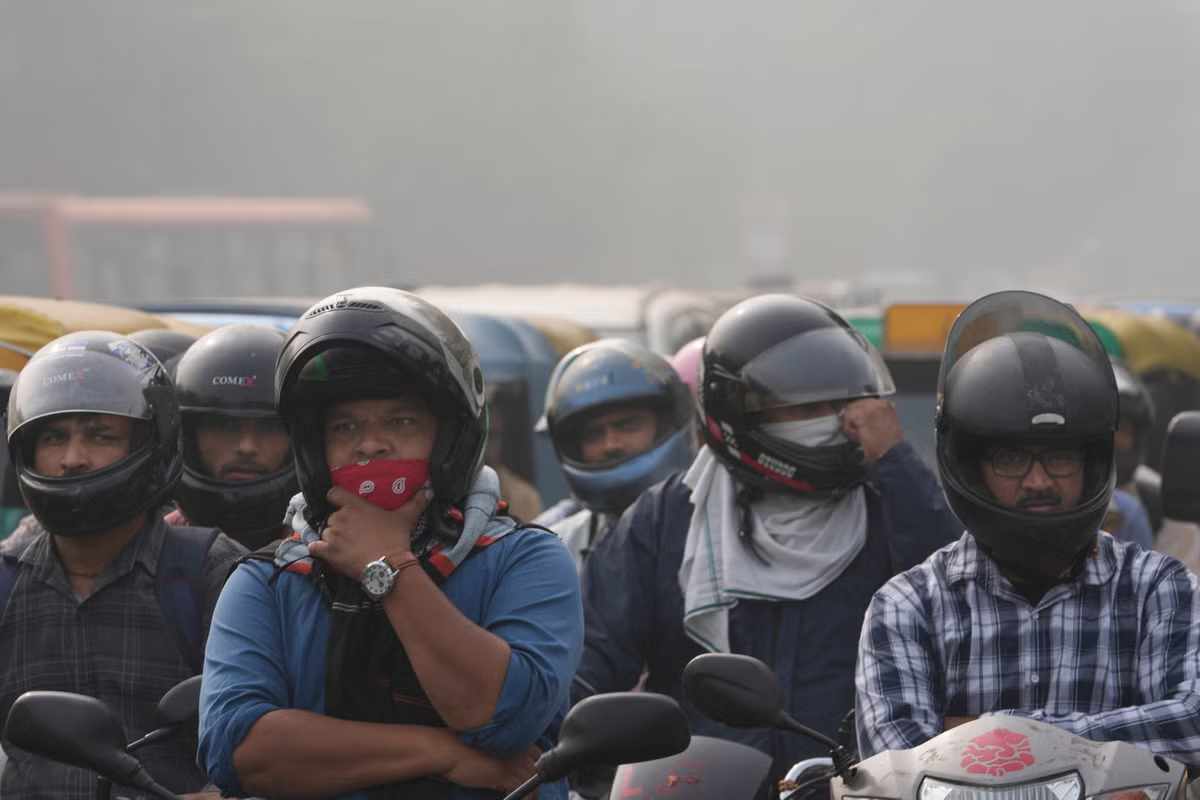[ad_1]

Your support helps us to tell the story
From reproductive rights to climate change to Big Tech, The Independent is on the ground when the story is developing. Whether it’s investigating the financials of Elon Musk’s pro-Trump PAC or producing our latest documentary, ‘The A Word’, which shines a light on the American women fighting for reproductive rights, we know how important it is to parse out the facts from the messaging.
At such a critical moment in US history, we need reporters on the ground. Your donation allows us to keep sending journalists to speak to both sides of the story.
The Independent is trusted by Americans across the entire political spectrum. And unlike many other quality news outlets, we choose not to lock Americans out of our reporting and analysis with paywalls. We believe quality journalism should be available to everyone, paid for by those who can afford it.
Your support makes all the difference.
Thick smog shrouded New Delhi and other cities around South and Southeast Asia as air pollution levels soared Thursday.
Air pollution in the region worsens particularly in winter when the burning of crop residue in agricultural areas coincides with cooler temperatures that trap the smoke. The smoke is blown into cities, where there are more people and where auto emissions further add to the pollution. Emissions from industries without pollution controls and the use of coal to produce electricity are also linked to poor air quality in urban areas.
Several studies have estimated more than a million Indians die each year from air pollution-related diseases.
New Delhi’s air quality fell into the severe category, according to SAFAR, India’s main environmental monitoring agency. It measures particulate matter in the air that can enter the lungs.
In many areas of the city, the levels were more than 50 times higher than the World Health Organization’s recommended safe limit. Forecasters warned air quality will worsen before the arrival of cold winds next week that could blow away the smog.
Lahore, Pakistan, which is on the border with India, had an air quality index level considered hazardous, according to the Swiss group IQAir, which tracks global air quality.
The levels in Hanoi, Vietnam, were unhealthy, according to IQAir.
Transport, industry and construction were the main causes of bad air in Hanoi, Nguyen Hoang Anh, deputy head of the environmental quality management division at the ministry’s Pollution Control Department told state media on Monday.
Hanoi has around 1 million cars and nearly 7 million motorbikes. Many are old and don’t meet emission standards. Construction projects also don’t stop dust from escaping, and factories use fossil fuel for power, contributing to the city’s smog.
Bangkok’s air quality was unhealthy for sensitive groups on IQAir. The Meteorological Department said air ventilation rates have been poor recently and an atmospheric inversion layer caused airborne particles to accumulate.
[ad_2]
Source link



